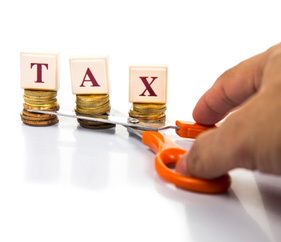Compared to the USA, Singapore is a Better Place to Start Business for an MNC
Which is the better place to start a business, Singapore or the USA? The comparison has to be based on the merit only. An independent agency that does impartial research, survey, or analysis and presents its studies to the global investors is better suited for the purpose.
 Ease of Doing Business
Ease of Doing Business
Singapore’s ascendancy from Third World to the financial hub of Asia is as nothing short of a miracle. There is a strong info-communication infrastructure, a stable political climate, a pool of skilled professionals and a strategic location to cash on.
Following is the table based on the data presented in the Global Competitiveness Report 2014–2015.
|
Indicators |
Singapore (Rank) |
USA (Rank) |
| Economy |
2 |
3 |
| Infrastructure |
3 |
30 |
| Labor Market Efficiency |
2 |
4 |
| Financial Market |
2 |
9 |
| Goods Market |
1 |
16 |
| Market Size |
31 |
1 |
| Technological Readiness |
7 |
16 |
| Macroeconomic Environment |
15 |
113 |
| Higher Education |
2 |
7 |
| Innovation & Sophistication Factors |
11 |
5 |
| Business Sophistication |
19 |
4 |
| Health And Primary Education |
3 |
49 |
| GDP Per Capita (Us$) |
54,776 |
53,101 |
| Transparency Of Government Policymaking |
1 |
44 |
| Business Costs Of Crime And Violence |
4 |
85 |
| Ease Of Access To Loans |
4 |
14 |
| No. Procedures To Start A Business* |
10 |
57 |
| No. Days To Start A Business* |
5 |
10 |
| Intellectual Property Protection |
2 |
20 |
When we look at the various aspects like the IP protection, openness to trade, innovation, labor force, living environment, we notice the higher ranking scored by Singapore than that reported in the USA.
Taxation
 Many multinational firms are announcing plans to move their headquarters to the city-state. Singapore company registration specialist SBS Consulting identifies the benefits these firms stand to enjoy with such a move.
Many multinational firms are announcing plans to move their headquarters to the city-state. Singapore company registration specialist SBS Consulting identifies the benefits these firms stand to enjoy with such a move.
These include attractive corporate tax and personal income tax rates, ease of setting up and doing business, extensive network of tax treaties (FTAs and DTAs), absence of capital gains tax, and lower lending rates offered by banks in Singapore.
- Singapore is known for its lower tax rates. Currently, the corporate income tax in Singapore ranges between 0% – 17% and personal income tax between 0% – 20%.
- During the last two decades, the Singaporean tax rates are steadily dropping. On the other hand, the average corporate income tax in the USA for the 2000-2015 is 39.23%.
- Singapore also encourages foreign investments and the number of Singapore business incorporation by offering an extensive network of free trade agreements and avoidance of double taxation agreements.
- Singapore has signed 74 Avoidance of Double Taxation Agreement (DTA), 41 Investment Guarantee Agreement (IGA), 21 Free Trade Agreements (FTA) and Economic Partnership Agreements (EPA) with its partner countries.
- These agreements not only facilitate cross-border trade, but also safeguard the interests of the investors and ensure that those who invest in Singapore will be able to reap maximum returns.
This clearly signifies that Singapore with its better economic policies and excellent infrastructure that is conducive to growth and development of a startup has been successful in drawing the attention of the entrepreneurs to the benefits of Singapore Company Registration and doing business in Singapore.
Incentive Schemes in Singapore
This country offers various incentive schemes to the startup as well as existing locally registered companies. That is why MNCs to set up regional headquarters and launch their operations in Asia Pacific. Following are a few of the schemes.
PIC scheme
Singapore offers 400% tax deduction or 60% cash payout each year for the investments made via the Productivity and Innovation Credit scheme. This is to cover the expenses incurred on acquiring and registering Intellectual Property Rights (IPRs).
The efforts are bolstered by the Republic’s strong focus on intellectual property protection, which is a crucial factor in today’s competitive global business environment.
Incentives for Headquarter Setup
In order to encourage multinational companies to relocate their headquarters to Singapore, the Economic Development Board (EDB) offers regional headquarters (RHQ) and international headquarters (IHQ) incentives.
Companies which are conferred the RHQ status enjoy a concessionary tax rate of 15% for qualifying income arising from headquarters activities and operations carried out from Singapore. Those awarded IHQ status enjoy even further attractive tax rates of between 0%-10percent.
Regional headquarters, which use Singapore as an international intellectual property (IP) holding location, are eligible to claim writing-down allowance (WDA) for the cost of acquisition of the IP.
Foreign Income Exemption
Singapore-based holding companies or headquarters can repatriate tax-free dividends from their directly held foreign subsidiaries to Singapore.
The foreign subsidiaries that are engaged in substantive economic activities, but are unable to meet the qualifying conditions for this tax exemption can apply for the specific exemption.
In addition, tax is not levied on foreign-sourced dividends remitted back into Singapore if,
- The dividends are received from a country with a headline corporate tax rate of at least 15%
- Some tax was paid in that country (such as withholding tax paid on the dividends or income tax paid on the profits out of which the dividends were paid)
Not Ordinarily Resident (NOR) Scheme
Individuals residing in Singapore, but with regional duties requiring them to spend at least 90 days a year outside the country, may apply for Not Ordinarily Resident (NOR) scheme.
Under this, their Singapore employment income is taxed on a time apportionment basis for up to five years of assessment. This is subject to a minimum threshold tax rate of 10%.
Here merit has more value than money. Their motto is “If you are good, then you qualify; otherwise there will always be better people around to handle the job.” Even Singapore company formation is in lieu with this statement.





